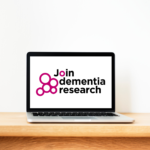Archives
New potential treatment for early-stage Alzheimer’s disease
3 March 2021

Alzheimer’s disease affects approximately 70% of people diagnosed with dementia, and an estimated 26 million people worldwide. In the very early stages, Alzheimer’s disease may be referred to or diagnosed as Mild Cognitive Impairment (MCI). There are no available treatments to prevent or delay the start of Alzheimer’s disease and currently medications only provide a […]
Study aims to support independence at home for people with dementia
14 December 2020

Most people with dementia want to remain living in their own homes for as long as they can, this can be made possible through either paid or family carers. However, lack of dementia training for paid carers can cause the relationships to break down. For family carers, problems with behaviour and communication can often cause […]
Great British wellbeing survey
13 October 2020

Do you have dementia, or do you care for someone who does? Have the COVID-19 restrictions had an impact on your wellbeing? Researchers at the UK Dementia Research Institute at Imperial College London would like to hear about your experience of the current situation. They are keen to understand what measures can be taken to […]
COVID-19 dementia research receives strong support during lockdown
10 July 2020

Thanks to our amazing Join Dementia Research volunteers, during lockdown we have been able to continue recruiting participants to studies that don’t involve person-to-person contact. Thousands of you have taken part in important studies relating to COVID-19 and dementia.
SleepQuest: sleep and mental health during the COVID-19 pandemic
5 May 2020

Good sleep is critical for wellbeing – including dementia prevention and good mental health. But the COVID-19 pandemic and lockdown is placing people under huge stress, which may disturb sleep. Disturbed sleep now may have an impact on current and future health for all, in particular those at risk of dementia. The SleepQuest study needs to hear about your experiences to understand the effect that the outbreak is having and create advice on how to manage sleep throughout this crisis and beyond.
How are COVID-19 closures affecting people with dementia and their carers?
21 April 2020

Due to the Coronavirus pandemic, many of the face-to-face services people with dementia and their carers often rely on are temporarily closed. Researchers need your help to understand the impact of these closures on the wellbeing of people with dementia and their carers.
Remembering names through computer therapy
12 August 2019

The ‘Gotcha!’ study is trialling a fun computer-based therapy to help people with dementia remember the names of the people who are important to them.
Driving and dementia: share your experience
4 July 2019

Help researchers to improve the guidance and support around driving after a dementia diagnosis by taking part in a survey to share your experience.
What’s that study? Investigating thinking and emotional regulation styles in older adults
18 February 2019

We spoke to Anne-Marie Greenaway, PHD student at the University of Reading, who is leading a study to investigate the emotional wellbeing of people living with dementia. When someone experiences a low mood, it makes it more difficult to complete everyday tasks. Low mood increases the level of cognitive impairment in people living with dementia. As approximately half the number of […]
‘Exercise hormone’ may play a role in combating Alzheimer’s disease
14 January 2019

This article has been reproduced from the NHS website. “An ‘exercise pill’ mimicking the effects of a gym workout could prevent Alzheimer’s disease,” the Daily Mirror reports. The “pill” is actually a reference to a protein called irisin. Irisin has been dubbed the “exercise hormone” because previous research found it’s released from muscles in response to […]
